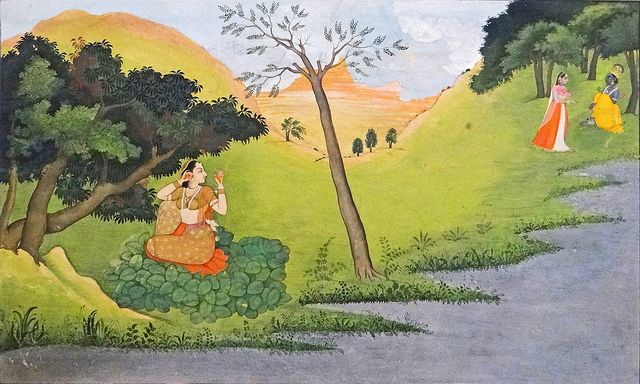
I am the Atma abiding in the heart of all beings. — Bhagavad Gita 10.20
Hinduism teaches us that God resides in all beings, be they Hindu or not. It is then our responsibility to treat people of all faiths and backgrounds as divine.
In our quest to promoting mutual respect and pluralism, HAF is participating in the Know Your Neighbor campaign. We’d like to share some of the times that we’ve seen the Atma abiding in all beings. The following short pieces below are by two of HAF’s summer interns, Arjun Venkataraman and Smriti Ahuja.
As part of Princeton University’s Religious Life Council, I was able to attend a week-long retreat with students who came from over 10 religious traditions. One by one, each of us had a space to share our story, our own struggles with religion and spirituality and our struggle with being human. For the first time, I had an opportunity to simply listen to what so many diverse people around me were talking about. It was a truly interesting experience.
The thing I realized is that all of us, Hindu, Muslim, Christian, Buddhist, Bahá’í, were all struggling with the same issues. While the answers may have been different, the questions were the same. Each of us was trying to understand our place in the world. Each of us were trying to see how we could be happy while making others around us happy. When we realize that we’re all attempting to attain the same goal, we realize that we aren’t part of the opposing teams. Rather, we’re all trying to run towards the same, daunting goal.
When we really listen and understand each other, we go beyond the differences and see that each of us struggle. We can either be lost alone, or we can embrace our struggles together and learn from different perspectives on the quest towards the same truth.
I’m lucky to have such diverse neighbors with whom I can discuss my own struggles with spirituality and religion. Through these neighbors, I am able to understand my own beliefs better. Through these neighbors, I am able to be a better Hindu myself.
— Arjun
When I was twelve years old, I became involved with Interfaith Ministries’ Meals on Wheels. With my limited exposure to other faiths growing up, I was aware of the irony of my involvement in this organization—there was nothing particularly interfaith about me. However,that changed when I heard about the ILEAD program from Interfaith Ministries that brought youth from different religions and faiths together to discuss world issues. My childhood curiosity wanted to know more about the many faiths in the world, so I decided to participate.
As the weeks progressed, after visiting the other members’ places of worship, I became more comfortable and developed friendships with people from many faiths including Islam, Christianity, Zoroastrianism, and New Age. ILEAD was a forum that allowed us to learn more about different religions and research the similarities that existed throughout the different faith perspectives of the world.
This experience shaped my understanding that all religions have foundations that unify, not divide, people. We have only begun the work needed to foster respect among cultures and faiths. Interfaith work is important to help our world understand the consequences of ignorance and why we should take the time to see the values that connect us, instead of what separates us.
Unity is the first step to a more peaceful world.
— Smriti
#KnowYourNeighbor








































